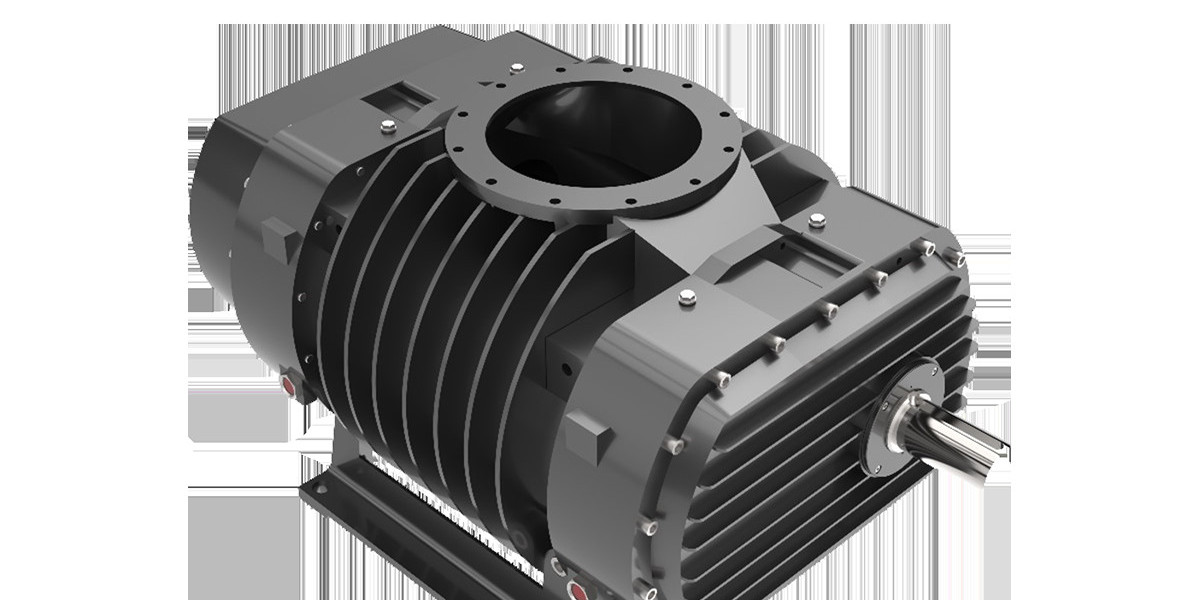Introduction
When it comes to industrial machinery, especially systems like the Twin Lobe Blower, durability is a critical factor that can significantly impact performance and maintenance costs. Twin Lobe Blowers are widely used in applications such as pneumatic conveying, wastewater treatment, and industrial ventilation, where reliability and long-lasting performance are essential. The material composition of these blowers plays a pivotal role in their durability, resistance to wear, and ability to withstand harsh working environments. In this article, we’ll explore the various materials used in the manufacturing of Twin Lobe Blowers and how they contribute to the blower's overall longevity and efficiency.
- Cast Iron: The Classic Choice
Cast iron is one of the most commonly used materials for Twin Lobe Blowers. Its popularity stems from its excellent wear resistance, strength, and cost-effectiveness. Cast iron components, including the blower casing and lobes, can endure the harsh operating conditions typically associated with air and gas compression systems. This material also offers high resistance to corrosion, which is crucial for applications involving moisture or chemicals. Moreover, the rigidity of cast iron ensures that the blowers maintain their structural integrity even under high operational pressures.
Advantages of Cast Iron:
- High tensile strength
- Excellent corrosion resistance
- Cost-effective manufacturing
However, the relatively heavy weight of cast iron can be a disadvantage in certain applications, particularly in industries where weight reduction is a priority.
- Aluminum Alloys: Lightweight and Strong
In contrast to cast iron, aluminum alloys offer a lightweight alternative without compromising strength and durability. Aluminum Twin Lobe Blowers are favored in applications where reducing weight is crucial, such as in mobile equipment or systems with frequent vibration. Aluminum also provides superior heat dissipation, making it ideal for environments where the blower operates under high temperatures.
The use of aluminum alloys in Twin Lobe Blowers is growing due to their combination of strength, durability, and lighter weight. This material is particularly useful in industries such as pharmaceuticals and food processing, where hygiene standards are stringent, and the equipment must be easy to handle and maintain.
Advantages of Aluminum Alloys:
- Lightweight and strong
- Superior heat dissipation
- Corrosion-resistant
- Ideal for high-temperature applications
- Stainless Steel: Ultimate Corrosion Resistance
When it comes to applications that demand the highest level of corrosion resistance, stainless steel is often the material of choice for Twin Lobe Blowers. Stainless steel is particularly beneficial in industries that deal with corrosive gases, chemicals, or environments where sanitation is a top priority. This material offers an exceptional ability to resist oxidation and corrosion, ensuring the blower remains functional and durable for extended periods without succumbing to degradation.
Though stainless steel is more expensive than cast iron or aluminum, its superior resistance to corrosion justifies the investment in high-end industrial applications. Twin Lobe Blowers made of stainless steel are especially common in food processing plants, chemical plants, and water treatment facilities, where maintaining cleanliness and integrity is vital.
Advantages of Stainless Steel:
- Unmatched corrosion resistance
- Long-lasting durability
- Ideal for harsh environments and food-grade applications
- Composite Materials: Advanced Durability for Specific Applications
In recent years, composite materials have started to make their way into the manufacturing of Twin Lobe Blowers, particularly in specialized or high-performance applications. These materials combine the benefits of multiple substances, such as fiberglass-reinforced plastics or carbon composites, to create a product that is both lightweight and highly resistant to wear and tear.
Composites can be engineered to withstand extreme temperatures, pressures, and chemical exposure, making them an excellent choice for highly specialized industries like aerospace, automotive, and advanced manufacturing. While the upfront cost of composite blowers can be high, their ability to offer superior performance and longer service life often makes them worth the investment.
Advantages of Composite Materials:
- Lightweight and highly durable
- Customizable properties for specific applications
- High resistance to extreme conditions
- Bronze and Brass: Combining Durability and Lubrication
Bronze and brass are less commonly used but still important materials for Twin Lobe Blowers in specific industries. These materials are prized for their ability to combine high strength with self-lubricating properties. As a result, blowers made from bronze or brass often experience less wear, reducing the need for frequent maintenance or lubrication. This makes them a suitable choice for applications in which reliability and reduced downtime are key.
Advantages of Bronze and Brass:
- High strength and corrosion resistance
- Natural lubricating properties
- Reduced maintenance and downtime
- Hybrid Materials: Combining Strength and Cost-Effectiveness
Some manufacturers opt for hybrid materials, combining different substances to balance cost, performance, and durability. These blowers may feature a combination of cast iron or aluminum bases with composite or stainless-steel internal components, offering both affordability and high performance. Hybrid materials allow for a tailored approach to blower design, optimizing specific properties for the given application.
Advantages of Hybrid Materials:
- Cost-effective while maintaining performance
- Customizable for specific applications
- Combines the best of multiple materials
Conclusion
The choice of material for Twin Lobe Blowers significantly influences their durability, performance, and overall efficiency. Whether it’s the classic strength of cast iron, the lightweight advantage of aluminum alloys, or the corrosion-resistant properties of stainless steel, each material brings unique benefits to specific applications. For industries that require high-end performance and long service life, materials like composites and hybrid designs are increasingly popular. Understanding the different materials and their respective advantages will help you choose the right Twin Lobe Blower for your industrial needs, ensuring long-term reliability and reduced operational costs.

